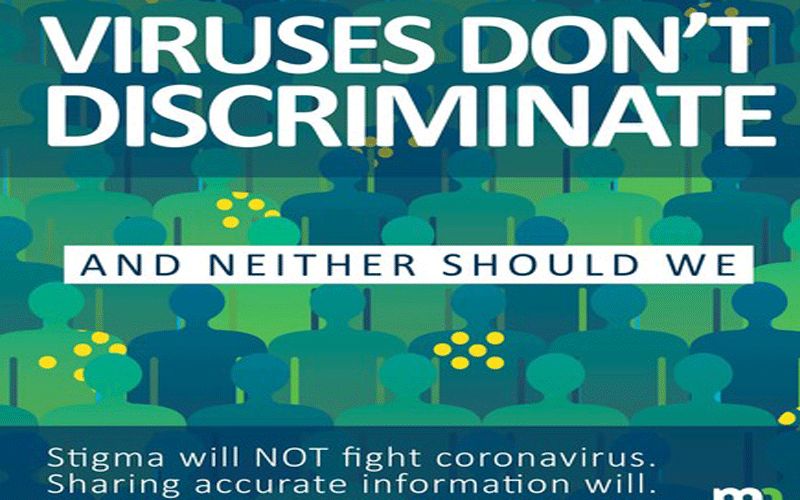“The stigma started when I granted an interview on TV. There is a time I went to the barber shop but wasn’t attended to. The gentlemen at the shop told me that there was no electricity yet I could see light at the top of the shop,” he said and added, “I saw the bulb, the bulb was on, TV was on and he told me there was no light. So, I left knowing that he probably has seen me on the television.”
“People have seen the face of my family on television and so on, so now when we go out to buy things, it becomes difficult being treated differently,” Drah said and urged the public to be sympathetic toward patients and survivors of the disease and avoid any kind of discrimination and stigmatization.
Divulging yet another stigmatizing ordeal, the COVID-19 survivor said, “I have an old car that I’ve been using and the starter developed a fault. I called my electrician several times to get me another starter but because he also saw me on TV, he decided not to come.”
According to Dr. Iddrisu, stigma like that suffered by Mathilda, Fredrick and many others, can pose major barriers against health care seeking, thereby reducing early detection and treatment and furthering the spread of disease.
According to the Catholic sociologist, stigmatized populations are likely to distrust health authorities and resist cooperation during a public health emergency.
(Story continues below)
“Social stigma may also distort public perceptions of risk, resulting in mass panic among citizens and the disproportionate allocation of health care resources by politicians and health professionals,” she says.
Although the government of Ghana has demonstrated unprecedented agility in responding to the crisis with extraordinary measures and schemes announced to mitigate the worst effects, Dr. Iddrisu feels that the impact of the pandemic is having different effects on men and women “in a complex, interconnected and overlapping ways,” hence, the need for the government of Ghana to accelerate efforts in addressing concerns of gender and stigma.
Dr. Iddrisu, a parishioner of Holy Rosary Church at Adenta in Accra recommends that the Ghana Health Service prioritizes the collection of accurate and complete age and sex data to understand how COVID-19 impacts individuals differently, in terms of prevalence, trends, and other important information.
“The Ghana Health Service should share accurate and supportive care and messaging with the intention to enhance people’s safety, dignity and rights,” she says, adding, “Stigma can be heightened by insufficient knowledge about how the new coronavirus disease (COVID-19) is transmitted, treated, and how to prevent infection.”
The Ghanaian national says that accurate information and education equips caregivers to understand the importance of reinforcing preventive measures in their households.
She says that the engagement of social influencers such as religious leaders to provide social and psychological support to people who are stigmatized and how to support them, or respected celebrities to amplify messages that reduce stigma is “very eminent.”
“We need to amplify the voices, stories and images of local people who have experienced COVID-19 and have recovered or who have supported a loved one through recovery to emphasize that most people do recover from COVID-19,” the specialist in sociology says.
In an interview with ACI Africa correspondent on May 10, the Catholic behavior scientist working at the University of Ghana, Aaron Makafui Ametorwo expressed concerns that some communities were driving away recovered patients returning to their own homes.
In some instances, landlords or landladies did not permit recovered patients to lodge in their apartments for fear of spreading the coronavirus on their premises, Mr. Ametorwo said.
He noted that a number of people who returned to Ghana from other countries were shunned by their own families, even after observing self-isolation for the required number of days.
“These and many other instances of stigmatization pose mental health issues for those who have recovered as well as their immediate families who are also being stigmatized,” the scientist lamented.
The Catholic scientist regretted that frontline health workers who have put their lives on the line to care for the patients infected with the coronavirus also have their share of the stigma, with some of them being referred to as coronavirus hunters.
Mr. Ametorwo averred that although so much education and publicity are in the public space admonishing people not to discriminate and stigmatize, a lot still needs to be done to help people come to terms with such education.
“The HIV stigmatization has not died down yet, and now the nation is faced with yet another deadly virus, which has already attracted so much stigmatization within a short time,” the Catholic scientist bemoaned.
The social behavior scientist advised that psychological interventions should not be overlooked when measures are being put in place and implemented in response to the coronavirus outbreak and called on the public not to stigmatize people affected with COVID-19.
He urged all not to panic, maintaining that COVID-19 “is not a death sentence.”
“Stigmatization is one of the major challenges in the battle against COVID-19 in Ghana. The necessary state agencies, together with the media need to collaborate more effectively and strategically in educating, educating, and educating,” he emphasized.
Mr. Ametorwo insisted that winning the battle against the pandemic required concerted efforts of health care providers, government, religious bodies, traditional rulers, and individuals.
“We need to work together to support the needs of individuals who are quarantined and isolated as they seek to transition to their homes to continue their therapy,” he said.








